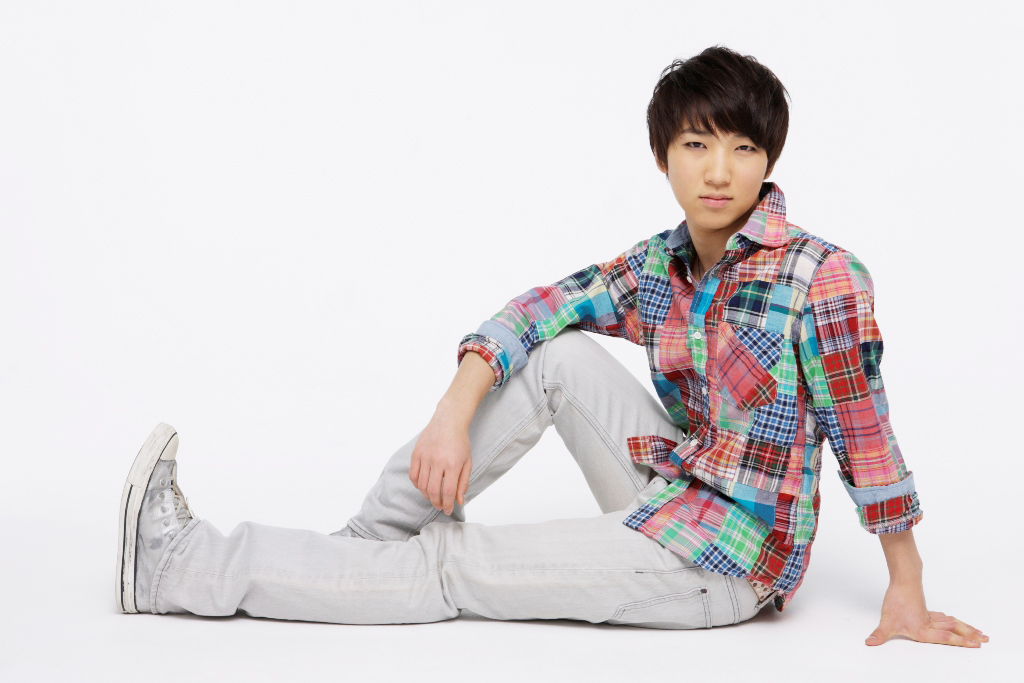ж∞іжЫЬжЧ•, 4жЬИ 18th, 2012...7:59 PM
JIWON debuting on April 18th,Interview by Japantwo
Reading time: About 6 minutes
JIWON debuting on April 18th,Interview by JapantwoJIWON (Real name Yan Ji-Won) is a 18 year old enka singer from Korea debuting on April 18th. He first made himself known in Korea at the age of 12 through trot music (the oldest form of Korean pop music.) In Japan, not a day goes by where you donвАЩt see a K-pop artist on TV, but he resolved to debut as an enka singer rather than as a K-pop artist. We decided to learn more about him and his decision to debut as an enka singer.
JP2: What triggered the desire to be a singer?
J (JIWON): There was always music playing at home which naturally made me interested in singing. My father was also a talented singer whose dream was to become a professional artist, and now heвАЩs handed that dream over to me.
JP2: How did you feel when made your first debut at 12?
J: When I was 12, I was filled with the urge to take on whatever challenges I faced, but my way of thinking back then was still very childish. It was possible to take action with sheer energy, but now IвАЩve come to think more about my future and it occasionally makes me anxious.
JP2: What were the reactions of your family and friends?
J: Everyone was happy for me and congratulated me. My father doesnвАЩt show his emotions in front of me but I think heвАЩs secretly pleased.
JP2: Why did you decide to debut in Japan?
J: In my music career in Korea and before my debut in Japan, I had the chance to listen to Japanese enka at record shops, and a new world opened up before me when I experienced enka for the first time. I feel itвАЩs similar to trot but thereвАЩs more variation and kobushi (similar to a vibrato), and I was deeply interested in this unique technique.
JP2: In Korea, you won several awards and graduated from high school at the age of 13, the youngest person ever to do so. It seems like youвАЩre already successful, but why did you decide to pursue your career in Japan?
J: My desire to study enka was strong, so I decided to study in Japan. At that time I was concerned about studying in Japan, so I committed myself to work in Japan after passing my high school exams. I studied for two years, one year studying for my graduation exams and another year studying Japanese.
JP2: How much did you study in a day?
J: When I was studying for the high school exams, I woke up at 7am and studied until 12am. For the JLPT, which I passed when I was 15, I studied from 9am to 10pm. YouвАЩre allowed to skip grades in Korea and there are those who decide to graduate high school as a junior high school student, then study abroad for the three years of high school.
JP2: Were you a talented singer as a child?
J: I practiced rigorously with my father as a child. When I was 9, I did abdominal breathing exercises and trained my abs by having my father sit on top of my stomach as I lay down and sang. There were times when I would cough up blood from my throat because of this continuous training, but when my singing career became successful my father was thrilled, both as a parent and a teacher. When I entered high school, I began to think about what was necessary for me to do rather than following a strict education. I feel that as a child, thereвАЩs a chance you wonвАЩt end up on the right path if you donвАЩt receive strict education, and I owe it all to my father who made me the person I am today. IвАЩm truly grateful to him.
JP2: What does singing mean to you?
J: Singing is my life. I couldnвАЩt continue to live if I didnвАЩt have singing. Strangely enough, when I was little I would heal my colds by singing. I feel that singing is the strength to live, much like an elixir, and you can express everything through song, during the hard or happy times in your life.
JP2: How do you feel when you sing?
J: I sing with emotion and with all my heart to please my fans. When things donвАЩt go as I expected or I fail, I always make time to reflect on myself. When I have a mental block, I make sure to rest by sleeping, and this helps me to continue working hard the next day. I can continue to mature because of this continuous cycle of success and failure, and I feel this is needed in order for me to become a great singer.
JP2: Is there anything else you endeavor to for your performances besides vocal training?
J: I make time to learn about Japanese music programs. I also go to theatres and concerts and learn about production and lighting methods as reference for the future.
JP2: What was the main theme behind your debut single Kimagure Shojo (Capricious Girl)?
J: In Kimagure Shojo, I placed importance on the image of my own youth and innocence. I think everyone can relate to the melody of the chorus and it stays in your mind so you can also sing along. ItвАЩs a love song anyone can sympathize with, and I tried to express the young boyвАЩs heart when heвАЩs being toyed around by the actions of the fickle young girl.
JP2: Finally, please tell us your future aspirations.
J: IвАЩm working my hardest for the debut on April 18th with the song Kimagure Shojo, and I hope to gain everyoneвАЩs support.
ThereвАЩs a boyish look about him whenever he smiles, but his expression was serious when talking about music, where his passion really shined through.
In this interview he revealed many sides of himself, from his enthusiasm towards music to the way he overcame the various hardships he had faced during his life. It will be interesting to see how JIWON develops as he continues to work hard creating music without any regrets.
You can buy his CD follwing Links
вЦ†Amazon
https://amzn.to/GGjGib
вЦ†TSUTAYA
https://bit.ly/GGjMGz
вЦ†HMV
https://bit.ly/GGjOOE






















Leave a Reply